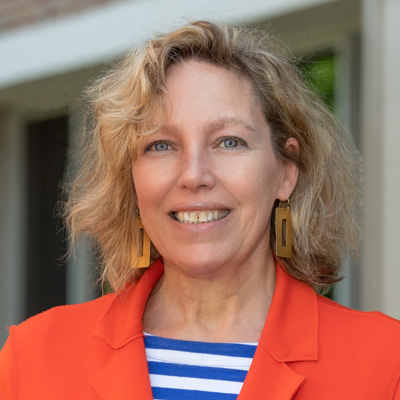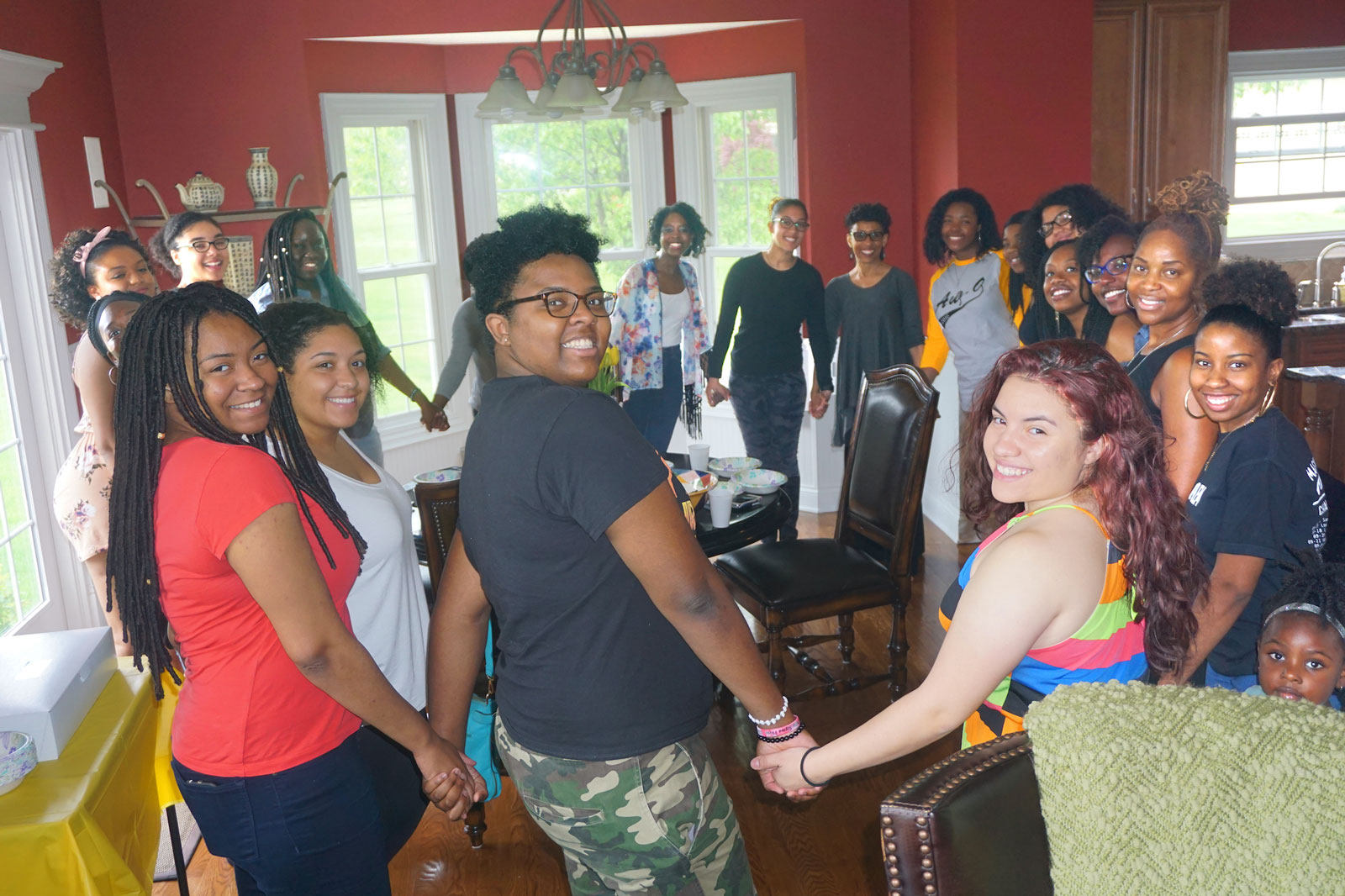Women of color on college campuses are in a unique position. These students often achieve academic and leadership excellence — but that very success can cover underlying feelings of not belonging.
Professors Fareeda Griffith and Karen Powell Sears — both women of color themselves — have deep empathy for these women. Five years ago, they began Sisters in Dialogue, a mentoring program for women of color.
“We held our first meeting with nine students and a few snacks in what was then the Soc-Anth library,” says Powell Sears, an assistant professor of anthropology/sociology whose research centers on issues of identity, health, and resilience among socially vulnerable populations. “A few students told us that they wanted a space to talk about things that were important to them and get our guidance.”
“That first meeting lasted two hours, and at the end, every student in the room said that they wanted to meet again,” says Griffith, an associate professor of anthropology/sociology and director of Denison’s Global Health Program. “We recognized that there was an unmet need and decided to create Sisters in Dialogue — a mentoring network that includes local professionals, community members and Denison faculty and staff members.”
For Black Studies and Anthropology/Sociology major Cheyenne Evans ’16, Sisters in Dialogue was transformative. “The program was essential to my experience at Denison. It was a safe place where I could be my authentic self, fully accepted and openly welcomed,” she says.
A focus on building personal strengths
While similar programs focus on what students are lacking, Sisters in Dialogue takes the opposite approach.
The program takes a holistic view of resilience. It provides the framework to strengthen students’ relationships, campus friendships and professional connections. The program also solidifies professional skill sets.
Sisters in Dialogue takes a holistic view of resilience. It provides the framework to strengthen students’ already existing relationships, campus friendships, and professional connections. The program also solidifies professional skill sets.
This strengths-based approach helps students repurpose what they already know and are good at to thrive on campus. They capitalize on these assets in their post-graduate lives as well.
Graduates of the program often come back to campus to lend a hand. Recently, three members of the Class of 2018 added to the dialogue. Denison President’s Medalist Dajia Dampeer conducted an elevator speech workshop and shared insights about her experiences working as a consultant for Deloitte, Norma Sance conducted a wellness workshop, and Monae Thomas shared ways to build academic support strategies.
And the program works. One result? After graduation, Evans completed a 27-month service in the Peace Corps and traveled solo across Southern Africa and Europe. She credits the program with becoming comfortable with risk. “I learned how to be comfortable in my own imagination and create a path where I still am unsure about my end goal/career. I’ve taken risks and learned to comfortable forging this path.”
Creating a new model for Women of Color
Of course, being researchers, Griffith and Powell Sears articulated questions, wrote hypotheses and built a database over the length of the ongoing program. All of which contributed to a research article, “What Can We Learn from Women of Color in the Academy: Mentoring Focused on Resilience Rather than Risk.”
The success of the program is gaining lots of attention. Other institutions, including Temple University and the University of Wisconsin Green Bay, are exploring bringing the program to their own campuses.
Griffith and Powell Sears say they are building on the work of Toni King, an associate professor and director of the Black Studies Program at Denison. In 2009, King and Sonya McKay, an associate professor of chemistry, created an inaugural mentoring program that opened the door to their imaginations. “Toni created a student-centered culture of caring — a fabric of space for us to build on,” they say.
The relationships Griffith and Sears are building means they are more than simply professors to these young women. “I am so inspired by them and even wrote my graduate school essays on their mentorship,” says Evans. “The way to describe my sentiment is by using a South African concept of ubuntu: I am who I am because of who they are.”
The Sisters in Dialogue program principles:
- Holistic and addresses multiple areas relevant to WOC student wellbeing
- Identifies and validates student strengths in each of these areas
- Assesses opportunities for each student’s self-advocacy in each of the need areas
- Engages mentors as facilitators and advocates in each of the need areas.
- Cultivates an authentic and meaningful community of caring
- Provides holistic support by leveraging the breadth of resources from the university as well as the local community, while recognizing the student as an active agent in constructing their wellbeing with guidance from and in collaboration with mentors.

